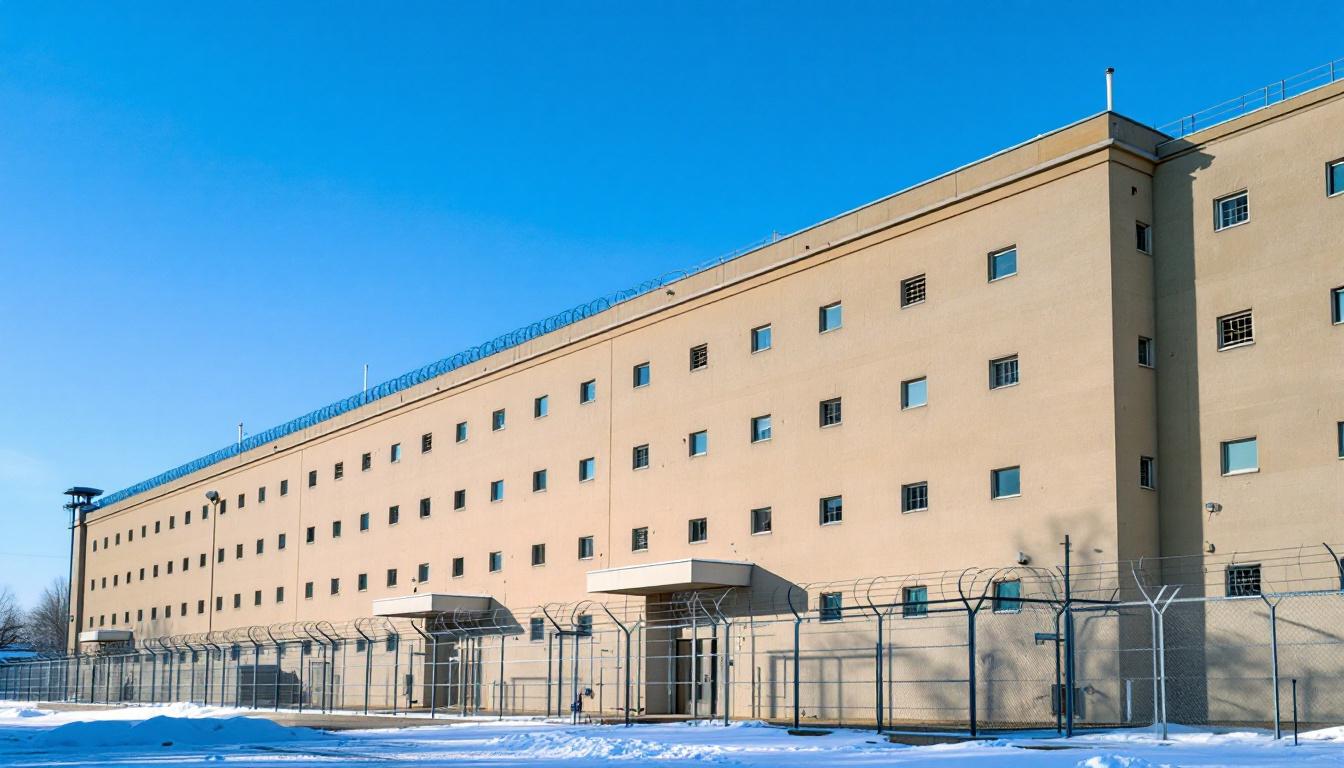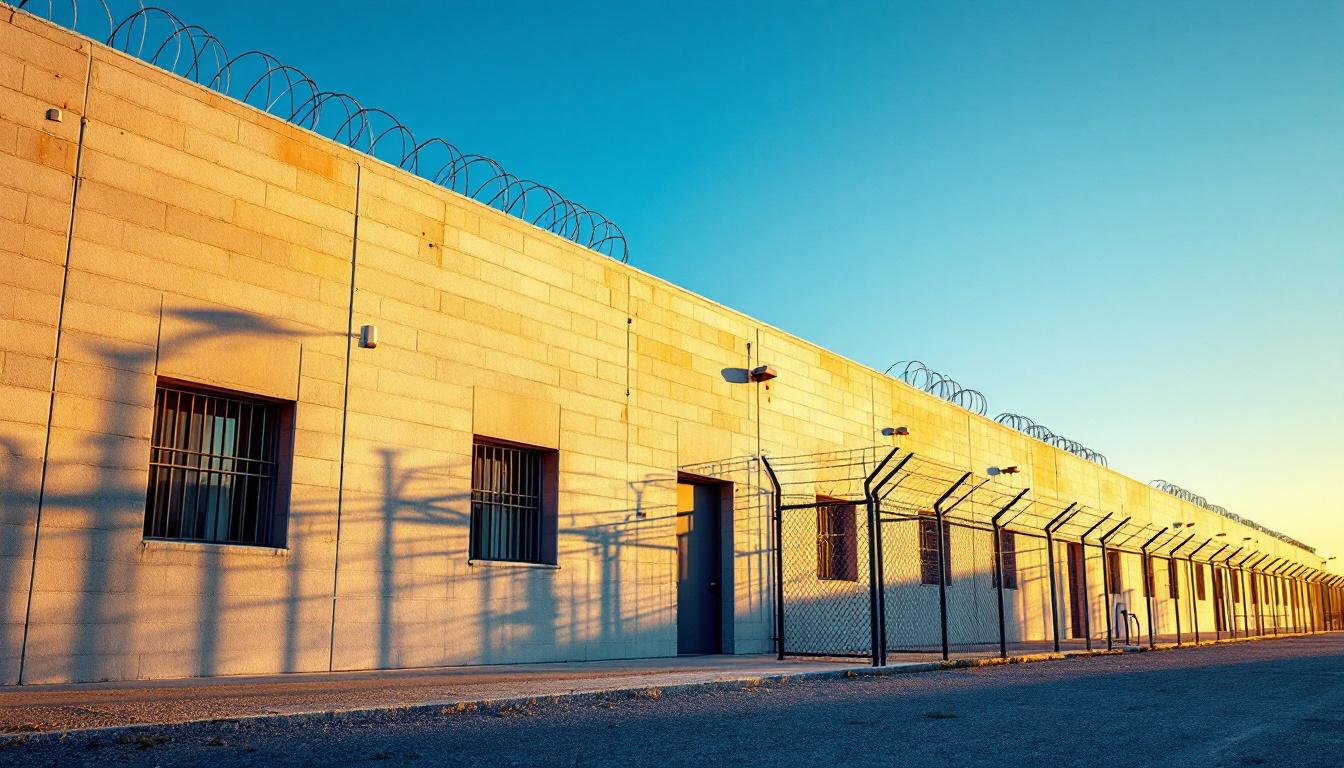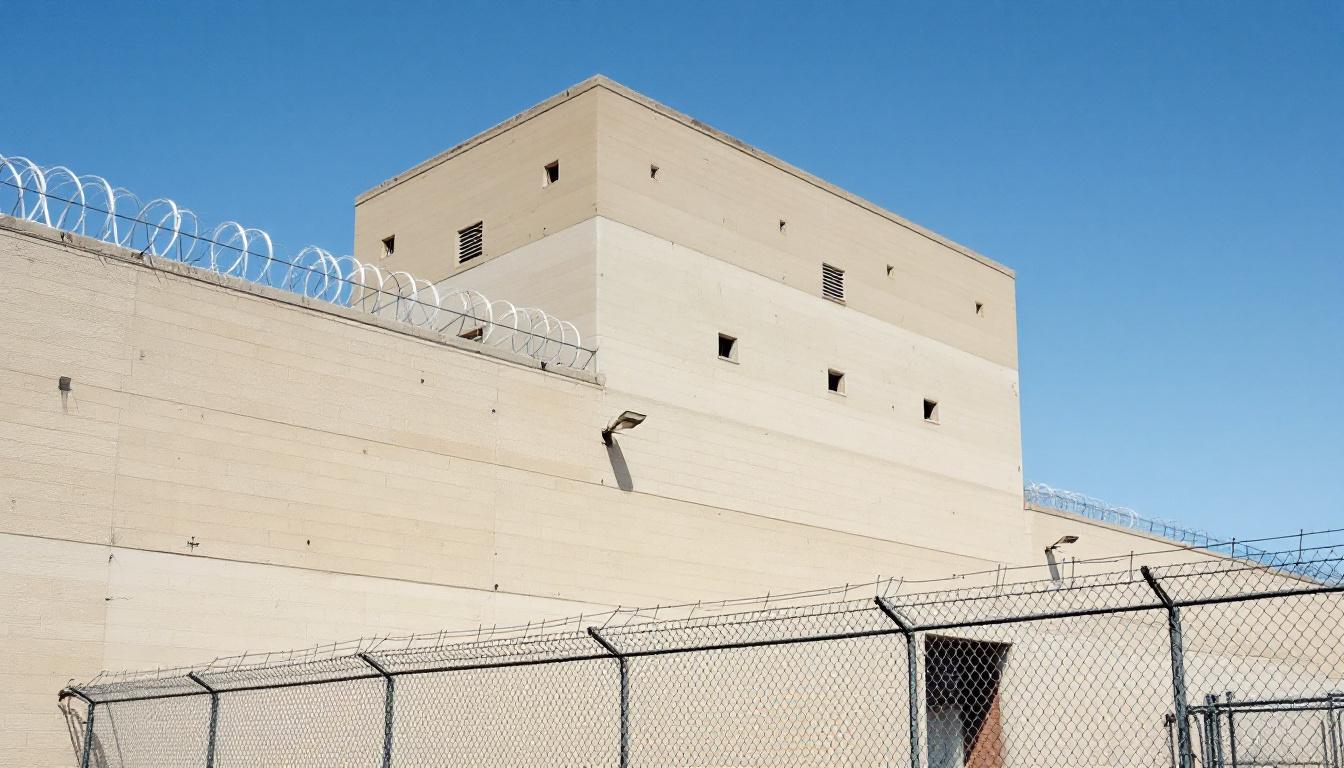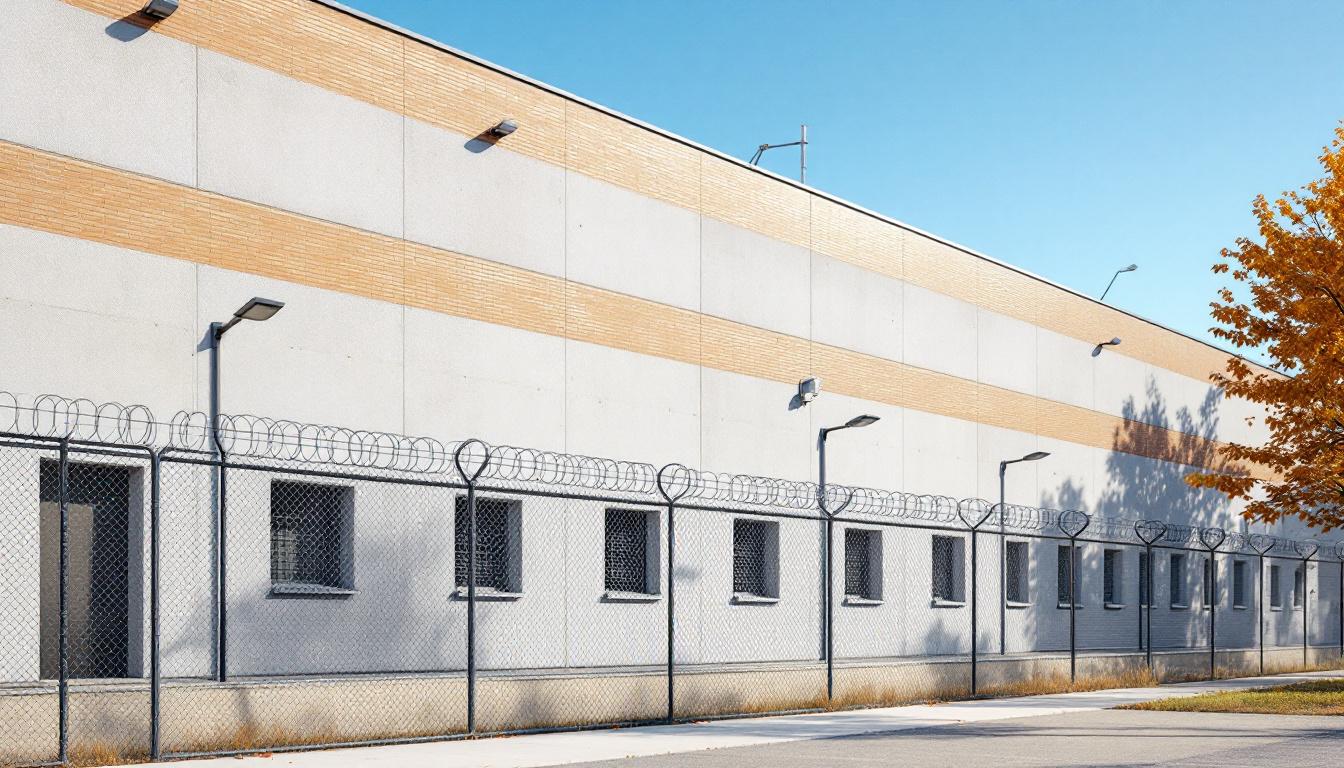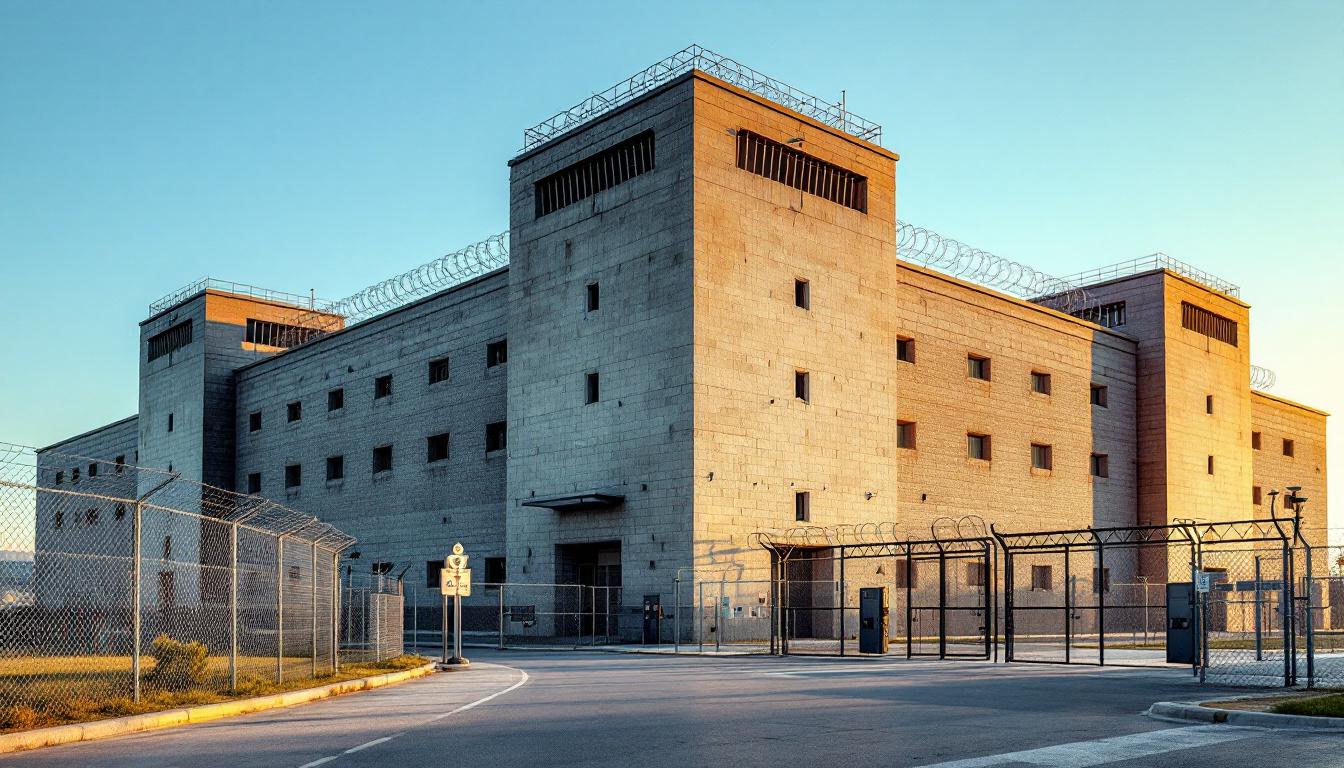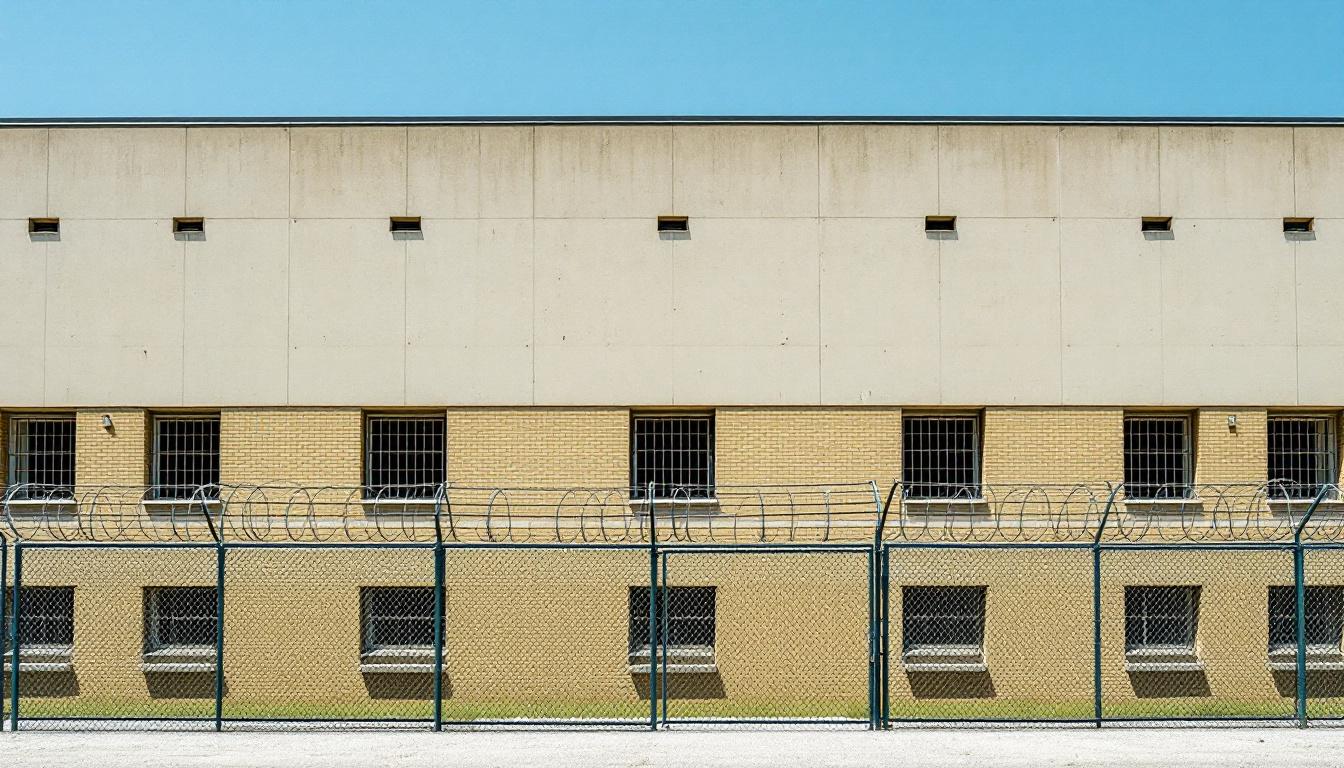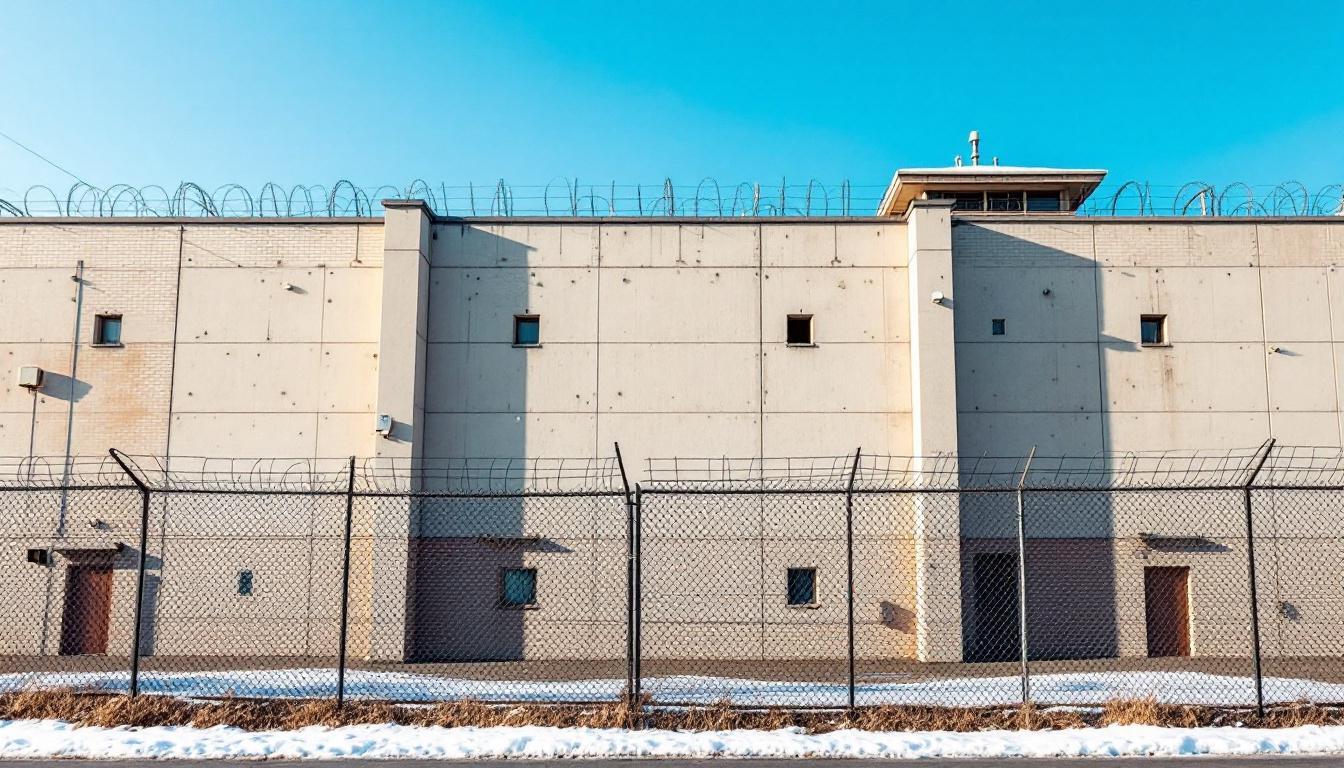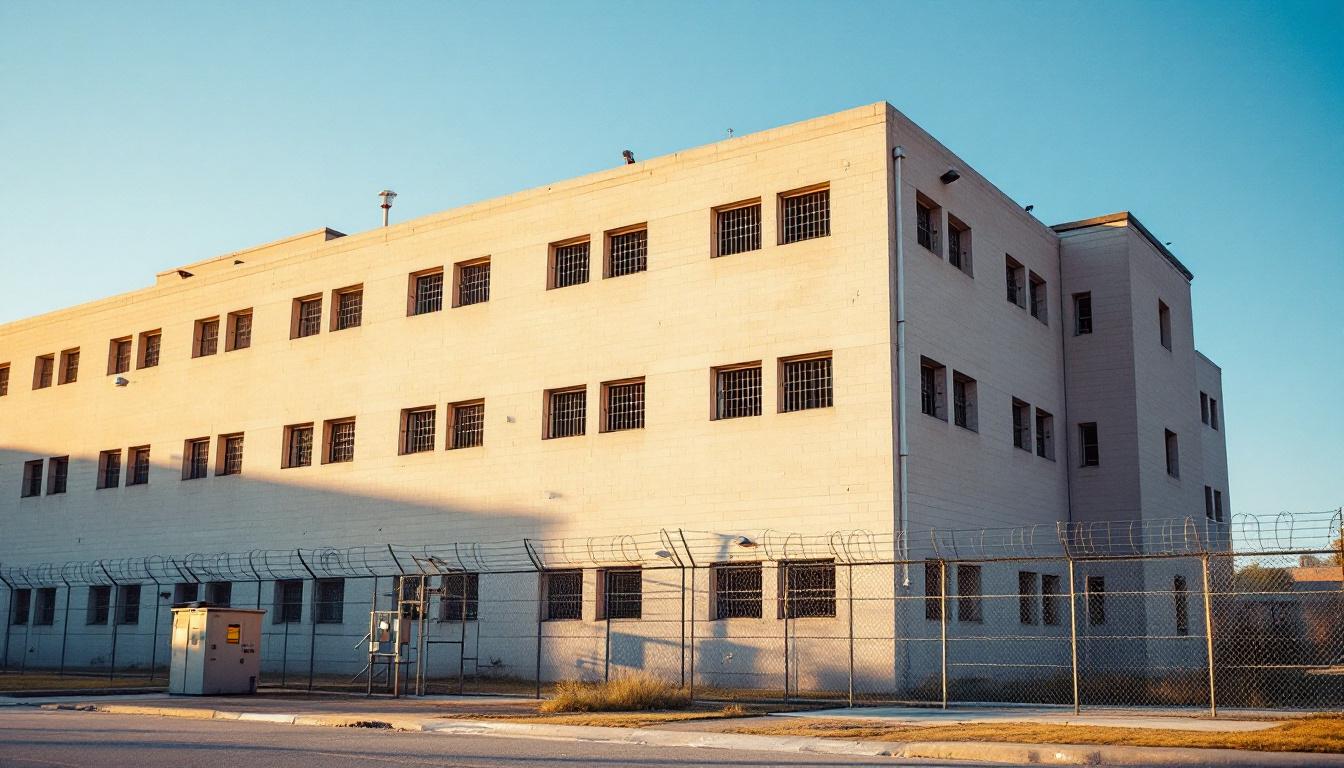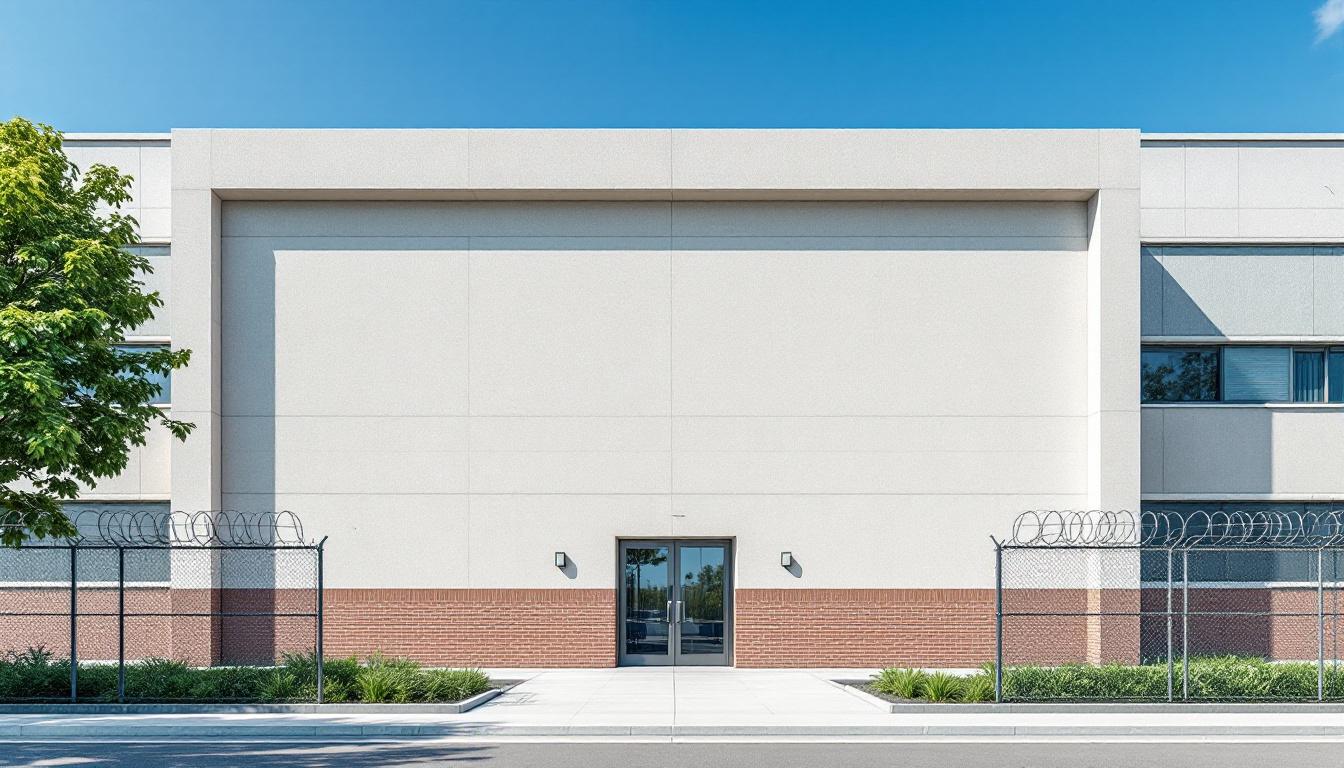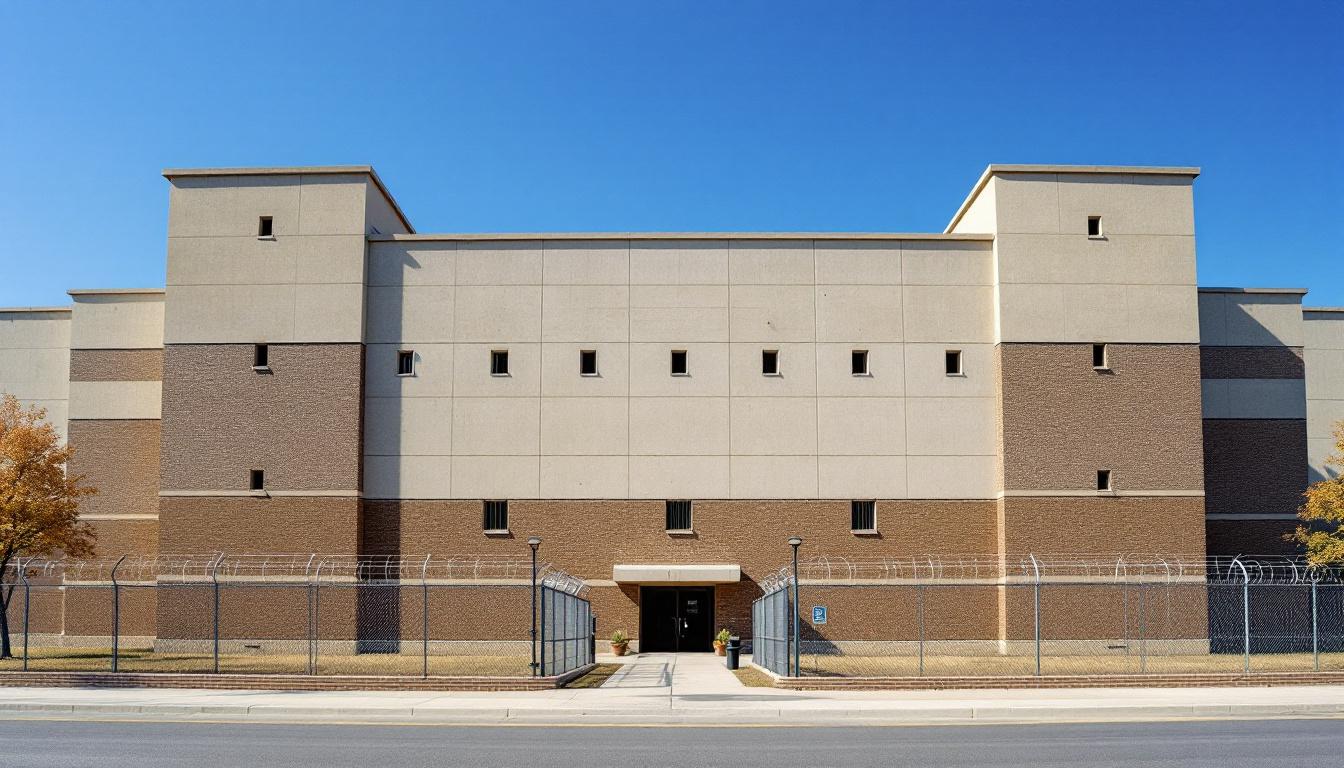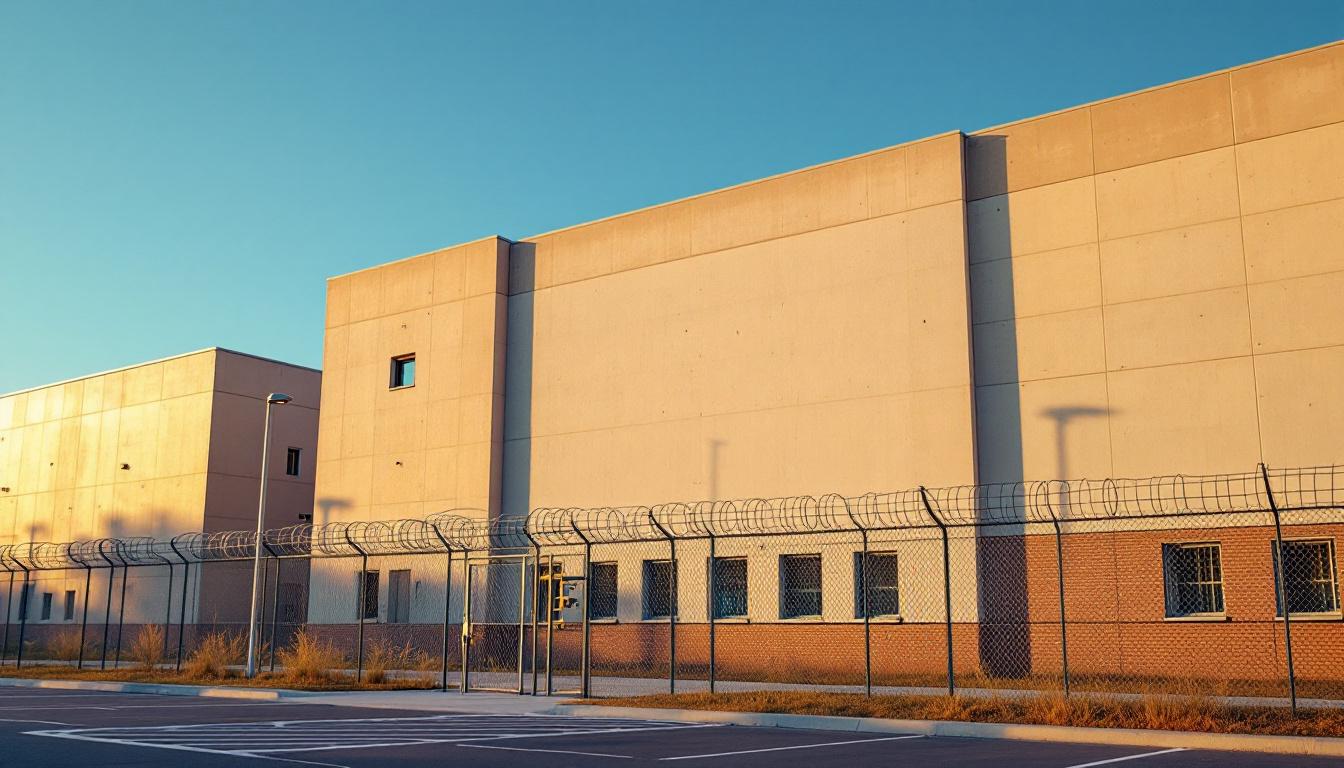
Quick Navigation
How to contact an inmate at Gilmer County Detention Center
This comprehensive guide will walk you through how to connect with an inmate at Gilmer County Detention Center. Follow the steps below to find an inmate and send letters and photos:
- Search for the inmate using our search tool below
- Create your account or log in to Penmate
- Write your message (up to 6,000 characters)
- Send instantly - inmates receive printed copies daily
Find an Inmate
Search for an inmate to start communicating today
Tip: You can search by first name, last name, or inmate ID number
To contact a person at Gilmer County Detention Center start by searching for the person on the official facility website. Perform a search by following these steps:
- Step 1: Enter their first name and last name into the search form and click "Search"
- Step 2: Locate their inmate record
- Step 3: Write down their Inmate ID and any housing information provided
Important! Be sure to enter the person's full name. Nicknames should not be used.
How to Send Messages to Inmates

You can use your phone or computer to send emails, letters, and photos to an inmate. Messages are sent electronically to inmate tablets or kiosks at the facility. If you would like to send a message, start by searching for an inmate at Gilmer County Detention Center.
Sending Photos and Postcards

A great way to send love and support to a loved one at Gilmer County Detention Center is to send photos and postcards. It only takes a few minutes to send photos from your phone and it makes a huge difference. You can also mail postcards with words of support and inspiration, or design your own postcard for special moments like birthdays and holidays.
Important! Be sure not to send any explicit photos or they may not be approved by the facility. You can also use a photo printing app like Penmate to make sure your photos are printed at the correct size (4x6 or 3x5) and are mailed according to the rules and regulations of Gilmer County Detention Center.
Frequently asked questions about Gilmer County Detention Center
-
How long does it take to deliver a message?
If you're sending an email message your letter is usually delivered within 24-48 hours. For messages sent via mail you should expect delivery within 3-7 days. All messages will need be approved by Gilmer County Detention Center.
-
How much does it cost to send a message to Gilmer County Detention Center?
You can send a message free using your phone or mail a message via USPS for the price of a $0.60 stamp and envelope. You can also purchase credits or e-stamps from services starting at $1.99.
-
What services can I use to contact an inmate at Gilmer County Detention Center?
Penmate
You can use Penmate to send letters and photos to an inmate from your phone. It's an easy way to stay in touch during your loved one's incarceration. Use the inmate locator to find an inmate's location and contact information, then you can send messages within a few minutes.
Securus messaging
Securus may be another option for communicating with an inmate at Gilmer County Detention Center. You can create a friends and family account and purchase credits to send messages. All messages will be reviewed and must be approved by the facility.
JPay
Some county jails and state prisons may support sending messages with JPay. You must register an account with the system, find your loved one, and purchase stamps to send messages. For some locations you can also attach photos.
Smart Jail Mail
You may also check if Smart Jail Mail is available at Gilmer County Detention Center. Smart Jail Mail is operated by Smart Communications and has contracted with some state and county jails. After purchasing credits, your messages and photos are sent to the facility, printed out, and then handed out to your loved one.
-
What is the mailing address of Gilmer County Detention Center?
Mailing address:
Gilmer County Detention Center
106 Brett Dickey Memorial Dr
Ellijay, GA 30536
Phone: (706) 635-4625Business hours:
- Monday: Open 24 hours
- Tuesday: Open 24 hours
- Wednesday: Open 24 hours
- Thursday: Open 24 hours
- Friday: Open 24 hours
- Saturday: Open 24 hours
- Sunday: Open 24 hours
-
What are the visiting hours at Gilmer County Detention Center?
Visiting hours at Gilmer County Detention Center vary by housing unit and security level. Generally, visits are scheduled on weekends and holidays, with some facilities offering weekday visits. Contact the facility directly at (706) 635-4625 or check their website for the current visiting schedule. Visits typically last 30-60 minutes and must be scheduled in advance.
-
What items are prohibited when sending mail to Gilmer County Detention Center?
Prohibited items typically include: cash, personal checks, stamps, stickers, glitter, glue, tape, staples, paperclips, polaroid photos, musical or blank greeting cards, hardcover books, magazines with staples, and any items containing metal or electronics. Only send letters on plain white paper with blue or black ink. Photos must be printed on regular photo paper (no Polaroids). Always check with Gilmer County Detention Center for their specific mail policies.
-
How do I send money to an inmate at Gilmer County Detention Center?
You can send money to an inmate at Gilmer County Detention Center through several methods: 1) Online using JPay, Access Corrections, or the facility's approved vendor, 2) Money orders mailed directly to the facility with the inmate's name and ID number, 3) Kiosks located in the facility lobby, or 4) Over the phone using a credit or debit card. Fees vary by method, typically ranging from $2.95 to $11.95 per transaction.
-
Can I schedule a video visit with an inmate at Gilmer County Detention Center?
Many facilities now offer video visitation as an alternative to in-person visits. At Gilmer County Detention Center, video visits may be available through services like Penmate, Securus Video Connect, GTL, or ICSolutions. Video visits typically cost $10-20 for 20-30 minutes and must be scheduled in advance. You'll need a computer or smartphone with a camera and reliable internet connection. Contact the facility for their specific video visitation policies and approved vendors.
-
What identification do I need to visit an inmate at Gilmer County Detention Center?
All visitors must present valid government-issued photo identification such as a driver's license, state ID, passport, or military ID. Minors must be accompanied by a parent or legal guardian who can provide the minor's birth certificate. Some facilities require visitors to be on the inmate's approved visitation list, which may require a background check. Contact Gilmer County Detention Center for specific ID requirements and visitor approval procedures.
-
How can I find out an inmate's release date?
To find an inmate's release date at Gilmer County Detention Center, you can: 1) Use the online inmate search tool if available, 2) Call the facility's records department, 3) Contact the inmate's case manager or counselor, or 4) Have the inmate provide this information during a call or visit. For privacy reasons, some facilities only release this information to immediate family members.
Facility Overview
Contact Information
Gilmer County Detention Center106 Brett Dickey Memorial Dr
Ellijay, GA 30536
Phone: (706) 635-4625
Official Website
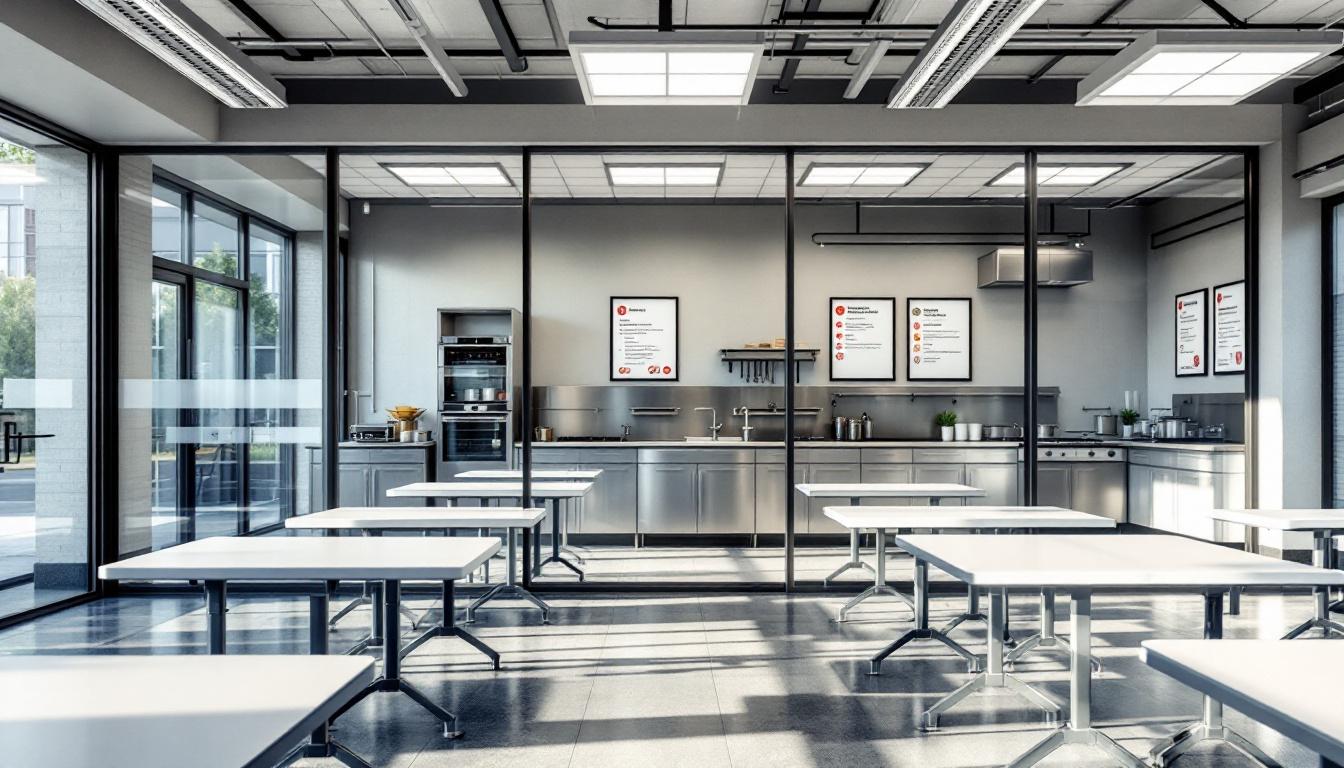
About Gilmer County Detention Center
Nestled in the North Georgia mountains, Ellijay serves as home to the Gilmer County Detention Center, GA, a facility that plays a vital role in the regional corrections network while maintaining strong connections to the surrounding community. This GA correctional facility operates with a focus on providing essential residents services that support both immediate detention needs and longer-term rehabilitation goals within the broader framework of Georgia's correctional system.
The detention center typically emphasizes educational programming and skill development opportunities that may help prepare individuals for successful community reintegration. Staff members generally work to coordinate various support services, which often include substance abuse counseling, vocational training components, and basic educational advancement programs. These initiatives reflect the facility's commitment to addressing underlying factors that may contribute to criminal behavior while maintaining security standards appropriate for a detention environment.
As part of the south region's correctional infrastructure, the facility often collaborates with local organizations and service providers to ensure continuity of care and support systems. The detention center may offer mental health services, medical care coordination, and pre-release planning assistance to help residents transition back into the Ellijay community and surrounding areas. This comprehensive approach to detention services reflects broader trends in modern corrections toward rehabilitation-focused programming that serves both individual residents and community safety interests throughout Gilmer County and the greater North Georgia region.
Programs & Services
Comprehensive rehabilitation initiatives at Gilmer County Detention Center focus on addressing the root causes of criminal behavior through evidence-based programming. The facility's approach emphasizes personal development and skill-building, recognizing that successful reentry requires both practical abilities and emotional stability. Residents typically participate in structured activities designed to prepare them for productive community integration upon release.
Educational initiatives form the foundation of the center's programming, often including basic literacy courses, GED preparation, and adult education opportunities. These academic programs may deliver instruction through both classroom settings and individualized tutoring sessions. Also available are vocational training opportunities that focus on marketable skills, with culinary arts programs being particularly emphasized. Residents in these vocational initiatives typically learn food preparation techniques, kitchen safety protocols, and basic restaurant operations that can lead to employment opportunities in the hospitality industry.
Support services complement the educational and vocational components through faith-based programming and stress management initiatives. The faith-based services may offer spiritual counseling, religious study groups, and worship opportunities for residents seeking spiritual guidance during their incarceration. Also integrated into the support framework are stress management programs that typically teach coping strategies, anger management techniques, and emotional regulation skills. These therapeutic initiatives often include group counseling sessions and individual consultations designed to help residents develop healthier responses to challenging situations they may encounter both during incarceration and after release.
Daily Life & Visitation
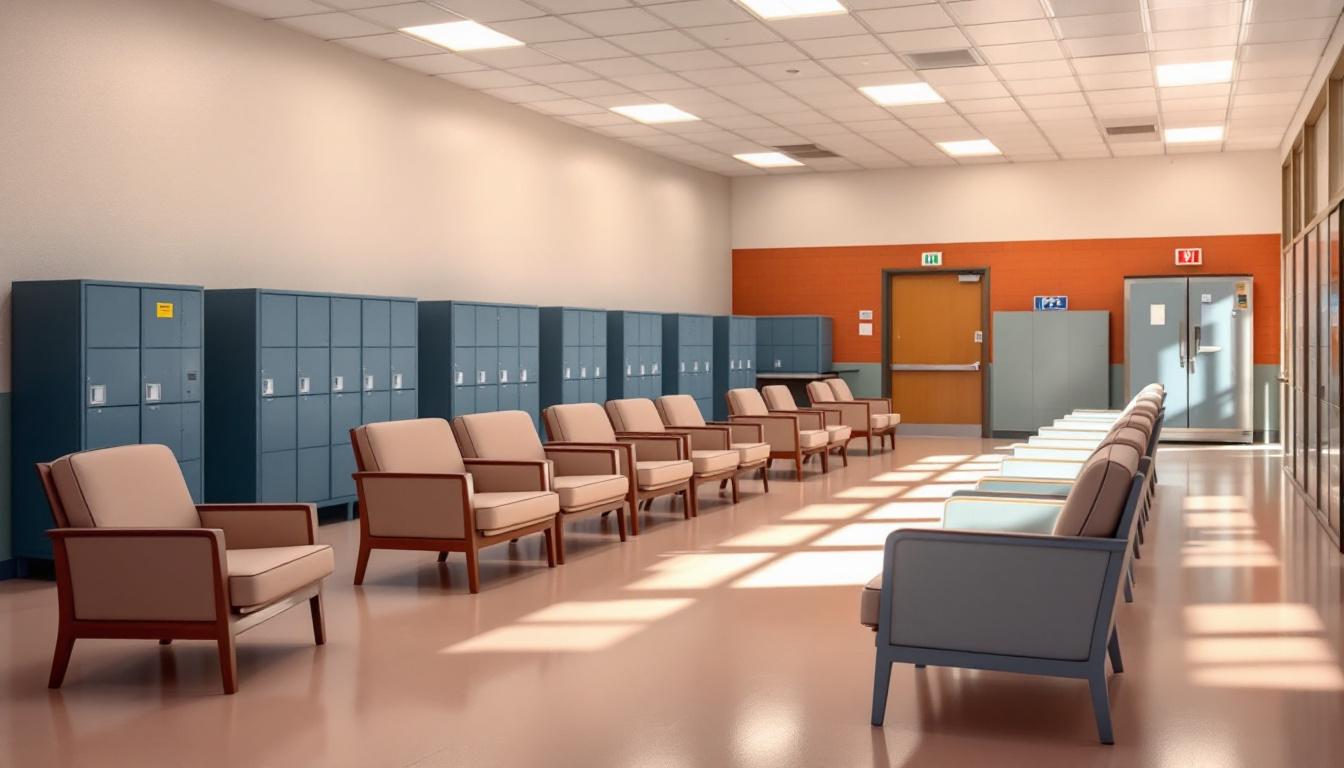
Structure and predictability form the backbone of daily operations, with residents at present following established schedules that actively promote stability and routine. Each day typically begins with early morning counts and meal service, followed by work assignments, programming activities, and designated recreation periods. The consistent timing of these activities helps residents develop healthy habits and maintain a sense of normalcy during their stay.
Living accommodations generally consist of shared housing units where residents are assigned beds and personal storage space for approved belongings. Meals are typically served at scheduled times in designated dining areas, with residents following established procedures for movement between housing units and common areas. Also, residents may access commissary services to purchase additional food items and personal care products, which helps supplement their basic needs and maintain connections to familiar comforts.
Programming schedules actively deliver educational opportunities, vocational training, and recreational activities that occupy residents' time constructively. Recreation periods usually include access to outdoor areas for exercise and indoor spaces for games or reading. However, family connections remain vital through scheduled visitation periods and telephone privileges, allowing residents to maintain important relationships with loved ones. Work assignments within the facility typically provide residents with responsibilities that contribute to daily operations while helping them develop job skills and earn modest compensation for personal expenses.
Ready to Connect?
Start communicating with your loved one today
Search for an Inmate
